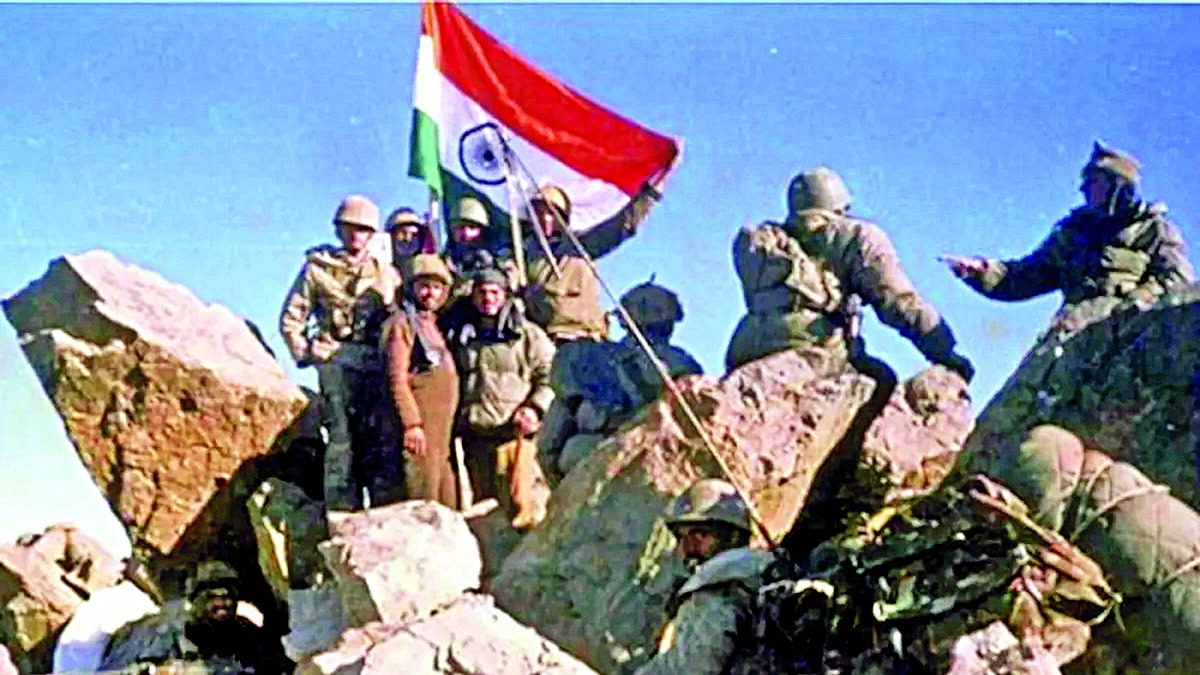India celebrates the 25th anniversary of the Kargil War victory. The Defence Ministry spokesperson shared a commemorative video on their Twitter account, marking the historical day when, on July 4, 1999, the Indian army's tigers successfully liberated Tiger Hill from Pakistani forces, altering the entire narrative of the Kargil War.
It was on this very day, July 4, 1999, when a crucial turn in the Kargil War unfolded with the capture of Tiger Hill.
The genesis of Pakistan's cowardice began on May 3, 1999, when armed infiltrators were spotted in the high regions of the Kargil district. An alert local shepherd informed the Indian army of their presence.
The Indian Army's patrol team was dispatched to investigate, but Pakistani infiltrators took five soldiers hostage. On May 5, information emerged that the captured soldiers had been killed by the infiltrators, and the army was preparing to retaliate. On May 9, 1999, Pakistan initiated a barrage of shelling that rendered the Indian army's arms depot in Kargil inoperable, wounding many soldiers, some of whom were martyred.
In the next 24 hours, further infiltrations were observed from across the border in the regions of Dras, Kaksar, and Mushkoh. By mid-May, Indian forces stationed in the Kashmir Valley were sent to reinforce the Kargil frontline. On May 26, the Indian Air Force began providing support to the army by targeting enemy positions.
Pakistan's attack on Indian fighter jets and helicopters escalated tensions. They downed a MiG-21 and MiG-27 with Anza missiles and detained Flight Lieutenant K. Nachiketa. He was released on June 3, 1999, as a prisoner of war. On May 28, a Pakistan-fired missile destroyed an Indian Mi-17 helicopter, martyring the four Indian soldiers aboard.
On June 1, 1999, continuous Pakistani artillery shelling was targeting the National Highway-1 (NH-1), effectively cutting off Ladakh from the rest of India. The highway is vital for the transportation of the army's weaponry, medical supplies, and provisions to Ladakh. Indian forces, disregarding their own safety, successfully recaptured all posts opposite NH-1 from Pakistani infiltrators by mid-June.
On June 9, the Indian army wrested control of two key peaks in the Batalik sector, reaffirming authority over crucial positions. By June 13, the army had regained control of the Tololing in Dras, despite significant losses. The string of victories continued, and on July 3-4, a fierce assault by Indian forces reclaimed Tiger Hill. A day later, Pakistani Prime Minister Nawaz Sharif, admitting defeat, ordered his forces to retreat. By July 14, 'Operation Vijay' was declared successfully concluded.




